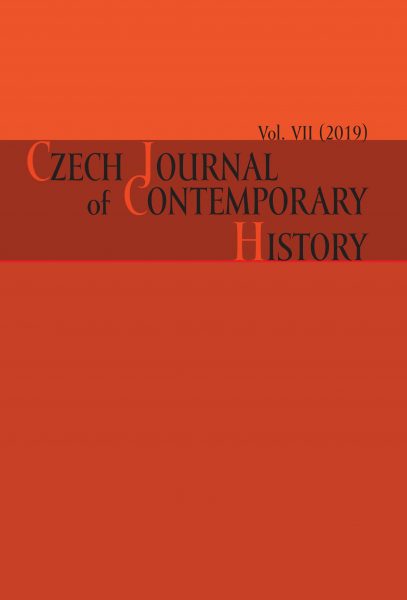Ten Propositions about Munich 1938. On the Fateful Event of Czech and European History – without Legends and National Stereotypes
Ten Propositions about Munich 1938. On the Fateful Event of Czech and European History – without Legends and National Stereotypes
Author(s): Vít SmetanaSubject(s): Diplomatic history, Political history, Interwar Period (1920 - 1939), Cold-War History
Published by: AV ČR - Akademie věd České republiky - Ústav pro soudobé dějiny
Keywords: Ten Propositions about Munich 1938; Fateful Event of Czech and European History; without Legends and National Stereotypes;
Summary/Abstract: This essay examines, in ten clearly formulated propositions, the causes and the long-term impact of the Munich Agreement of September 1938. This complex theme is approached through not purely national lenses. The term “betrayal” as a dominant label of the actions of the two West European democratic powers is thus questioned. The author claims that the British and French unwillingness to go to war because of Czechoslovakia’s border regions is, in the light of previous historical developments, understandable and, in a way, even rational. He also points out certain deficiencies in the Czechoslovak treatment of its German minority. At the same time, Czechoslovakia’s political leaders were playing a strange game with their people in September 1938, alternately stirring up and moderating their patriotic feelings – depending on where the behind-the-scenes negotiations on Czechoslovak border regions were heading at a given moment. Also the alleged Soviet preparedness to come to Czechoslovakia’s assistance in September 1938 is more than questionable; Stalin intended to intervene only in a European war, not to help lonesome Czechoslovakia. Nonetheless, Munich has had, and unfortunately continues to have, a fundamental influence on the Czech “mental map” of Europe. The lesson according to which the West should not be trusted and it would therefore be advisable to look for protection and alliance in the East still lives on in minds of a number of Czech politicians and of a not negligible segment of the public. On the other hand, the “lessons of Munich,” according to which it is not advisable to make concessions to any aggression or blackmailing, became a part of policies of Western statesmen confronting expansionist dictatorships, and the other life of Munich thus continued to complicate the use of “negotiations” as a method of dealing with international crises by Western politicians in the Cold War and beyond.
Journal: Czech Journal of Contemporary History
- Issue Year: VII/2019
- Issue No: 7
- Page Range: 5-14
- Page Count: 10
- Language: English

